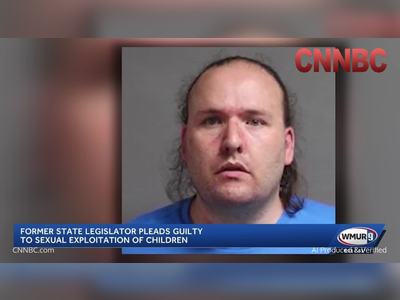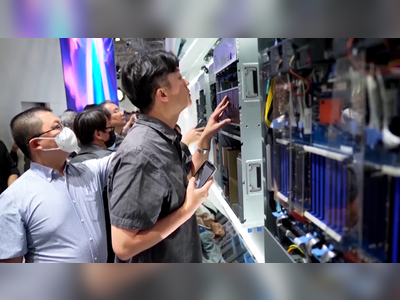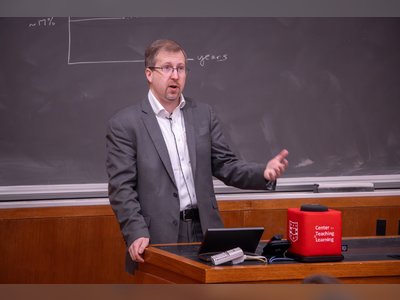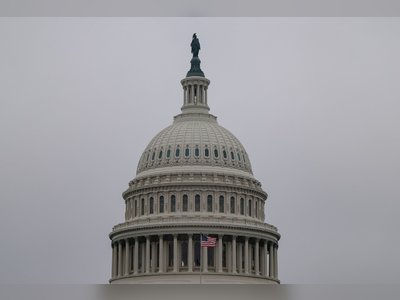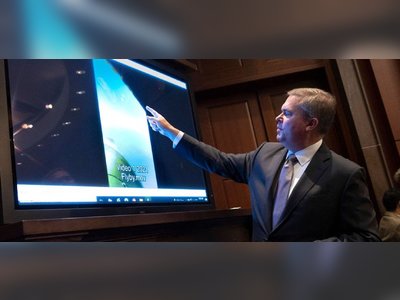
Prime Minister Albanese Secures Historic Second Term Following Labor Landslide Victory
The Labor Party's decisive win marks a significant shift in Australian politics, with broad implications for Indigenous rights and community policy.
Prime Minister Anthony Albanese has achieved a historic milestone by securing a second term for the Labor Party in the recent federal election, making it the first back-to-back electoral victory for a leader since 2004. This election result represents a significant setback for the Coalition, which is projected to record its worst performance in federal election history.
Notably, Peter Dutton, the opposition leader, became the first to lose his own seat, with Labor's Ali France defeating him in Dickson.
Palawa Elder Rodney Dillon, an Indigenous rights advisor at Amnesty International, characterized the outcome as a momentous opportunity for Australian unity.
‘We were sliding down a way that was trying to split us all apart, and I think that this has turned that around a bit,’ he remarked.
In a victory speech delivered at Labor headquarters in Sydney, Mr. Albanese commenced with an Acknowledgement of Country, stating, ‘The first thing that I do tonight is to say thank you to the people of Australia for the chance to continue to serve the best nation on earth.’ He emphasized the importance of recognizing the Traditional Owners of the land and paying respects to Elders past, present, and emerging.
Throughout the final week of the campaign, Mr. Dutton entered contentious territory regarding cultural issues, describing the Welcome to Country as ‘overdone’ and illustrating confusion between the concepts of Acknowledgement and Welcome.
This followed a series of recent incidents categorized as racist.
In his address on election night, Mr. Albanese asserted, ‘Today, the Australian people have voted for Australian values; for fairness, aspiration, and opportunity for all,’ and reaffirmed a government commitment towards reconciliation with First Nations communities.
‘We will be a stronger nation when we close the gap between Indigenous and non-Indigenous Australians,’ he added.
Dillon regarded this prioritization of reconciliation as promising, highlighting longstanding disparities in housing, health care, justice, and education, describing these issues as persistent challenges over decades.
He noted that the electorate does not favor divisions and expressed optimism that the election results might encourage collaborative efforts to address national issues.
The peak organization representing Aboriginal and Torres Strait Islander children and families, SNAICC, welcomed the election results.
Chief Executive Catherine Liddle, an Arrernte and Luritja woman, indicated that the outcome signifies a national desire for a society where children can thrive in safe and nurturing environments.
She noted that women and youth played a pivotal role in shaping the electoral outcome, alongside a sentiment among voters favoring investments in a more compassionate society.
While commending some pre-election initiatives from Labor aimed at early childhood development, Ms. Liddle remarked on the campaign's insufficient emphasis on child safety and effective protective measures.
'We know that the (Closing the Gap) target relating to child removals is way too big; it's still not moving because the investment hasn’t come in,' she noted, stressing the federal government's capacity to effectuate substantial change.
In light of the Coalition's notable defeat, Northern Territory Country Liberal Party Senator Jacinta Nampijipa Price criticized media portrayals and the Labor Party, responding to her depiction wearing a 'Make America Great Again' cap.
'In terms of wanting this country to be great, Donald Trump doesn't own those four words,' she claimed in discussions surrounding election outcomes.
The Central Land Council (CLC) in the Northern Territory expressed support for Mr. Albanese's commitment to empowering First Nations communities.
CLC chair Warren Williams emphasized the pressing issues of cost of living, job availability, and housing in the region, advocating for significant policy shifts concerning remote employment services and prioritizing community-led solutions.
'Together, we hope to strengthen outcomes for our communities, support self-determination, and ensure Aboriginal voices continue to shape the decisions that affect our lives,' Mr. Williams stated.
Notably, Peter Dutton, the opposition leader, became the first to lose his own seat, with Labor's Ali France defeating him in Dickson.
Palawa Elder Rodney Dillon, an Indigenous rights advisor at Amnesty International, characterized the outcome as a momentous opportunity for Australian unity.
‘We were sliding down a way that was trying to split us all apart, and I think that this has turned that around a bit,’ he remarked.
In a victory speech delivered at Labor headquarters in Sydney, Mr. Albanese commenced with an Acknowledgement of Country, stating, ‘The first thing that I do tonight is to say thank you to the people of Australia for the chance to continue to serve the best nation on earth.’ He emphasized the importance of recognizing the Traditional Owners of the land and paying respects to Elders past, present, and emerging.
Throughout the final week of the campaign, Mr. Dutton entered contentious territory regarding cultural issues, describing the Welcome to Country as ‘overdone’ and illustrating confusion between the concepts of Acknowledgement and Welcome.
This followed a series of recent incidents categorized as racist.
In his address on election night, Mr. Albanese asserted, ‘Today, the Australian people have voted for Australian values; for fairness, aspiration, and opportunity for all,’ and reaffirmed a government commitment towards reconciliation with First Nations communities.
‘We will be a stronger nation when we close the gap between Indigenous and non-Indigenous Australians,’ he added.
Dillon regarded this prioritization of reconciliation as promising, highlighting longstanding disparities in housing, health care, justice, and education, describing these issues as persistent challenges over decades.
He noted that the electorate does not favor divisions and expressed optimism that the election results might encourage collaborative efforts to address national issues.
The peak organization representing Aboriginal and Torres Strait Islander children and families, SNAICC, welcomed the election results.
Chief Executive Catherine Liddle, an Arrernte and Luritja woman, indicated that the outcome signifies a national desire for a society where children can thrive in safe and nurturing environments.
She noted that women and youth played a pivotal role in shaping the electoral outcome, alongside a sentiment among voters favoring investments in a more compassionate society.
While commending some pre-election initiatives from Labor aimed at early childhood development, Ms. Liddle remarked on the campaign's insufficient emphasis on child safety and effective protective measures.
'We know that the (Closing the Gap) target relating to child removals is way too big; it's still not moving because the investment hasn’t come in,' she noted, stressing the federal government's capacity to effectuate substantial change.
In light of the Coalition's notable defeat, Northern Territory Country Liberal Party Senator Jacinta Nampijipa Price criticized media portrayals and the Labor Party, responding to her depiction wearing a 'Make America Great Again' cap.
'In terms of wanting this country to be great, Donald Trump doesn't own those four words,' she claimed in discussions surrounding election outcomes.
The Central Land Council (CLC) in the Northern Territory expressed support for Mr. Albanese's commitment to empowering First Nations communities.
CLC chair Warren Williams emphasized the pressing issues of cost of living, job availability, and housing in the region, advocating for significant policy shifts concerning remote employment services and prioritizing community-led solutions.
'Together, we hope to strengthen outcomes for our communities, support self-determination, and ensure Aboriginal voices continue to shape the decisions that affect our lives,' Mr. Williams stated.



